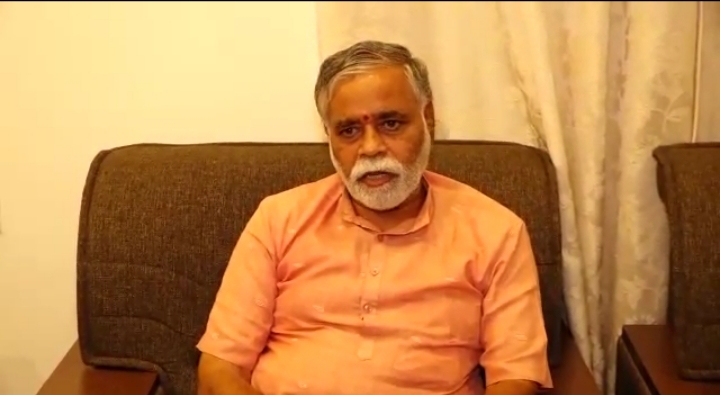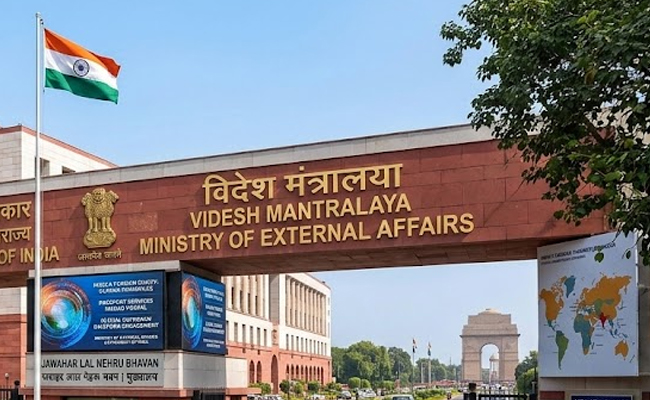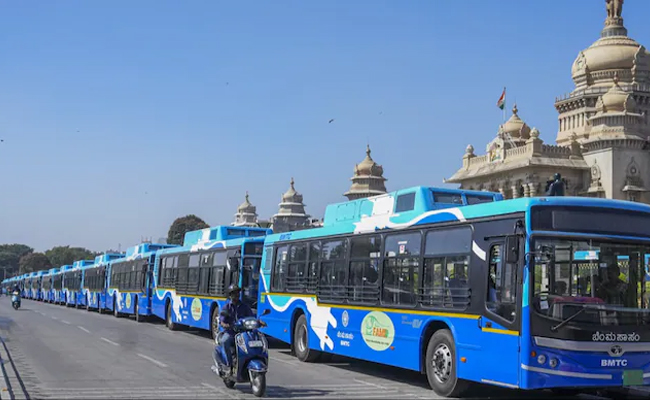Bengaluru: Karnataka Minister for Primary and Higher Education BC Nagesh on Monday stated that the state government will once again close down schools and colleges if there is a further increase in the number of COVID cases in the state and it poses threat to students.
The state is seeing a rise in the number of cases and including the new Omicron variant of the virus.
Speaking to the media reporters on Monday at the Vidhan Soudha in the state capital, the minister noted that the virus was not found in any government schools. “Cases were detected in some residential schools and appropriate action was taken at the earliest in that regard. Students were safe and were provided necessary treatment. I will be taking this matter up with the officials. Will direct them to implement all the measures of COVID guideline strictly.”
“Some of the students, teachers, and staffs of schools and colleges in the state have tested positive for the virus and this has triggered panic among the parents. We will not risk the lives of the students and any measure needed to ensure the safety of students will be undertaken. If need be, we will close down schools and colleges again and we will postpone exams in such circumstances,” he added
Let the Truth be known. If you read VB and like VB, please be a VB Supporter and Help us deliver the Truth to one and all.
New Delhi (PTI): The Ministry of External Affairs (MEA) has set up a control room to assist those affected by the escalating crisis in West Asia.
The MEA has said almost one crore Indian citizens live in West Asia and their safety and well-being is of "utmost priority" for New Delhi.
As the Iran-US conflict widened, the Indian embassy in Iran moved hundreds of Indian students from the Iranian capital of Tehran to safer locations.
"A Control Room has been set up in the Ministry of External Affairs in view of the current situation in West Asia and the Gulf region," the MEA said on Wednesday.
"The Control Room can be contacted from 9 am to 9 pm at: 1800118797 (Toll Free) +91 11 2301 2113, +91 11 2301 4104, +91 11 2301 7905," it added.
The US launched military strikes on Iran on February 28, killing Iranian Supreme leader Ali Khamenei.
Following the military offensive, Iran has carried out a wave of attacks mainly targeting Israel and American military bases in several Gulf countries, including the UAE, Bahrain, Kuwait, Jordan and Saudi Arabia.
The MEA on Tuesday noted that almost one crore Indian citizens live and work in the Gulf region, and their "safety and well-being is of utmost priority."
"We cannot be impervious to any development that negatively affects them," it said.
The MEA said New Delhi will continue to closely monitor the evolving situation and take relevant decisions in the national interest, adding it is in touch with the governments in the region as well as other key partners.
A Special Control Room has been set up in the Ministry of External Affairs in view of the current situation in West Asia and the Gulf region. Details are as below ⬇️
— Randhir Jaiswal (@MEAIndia) March 4, 2026
🔗 https://t.co/nK3d6SY9Pa pic.twitter.com/v2EhUI5B1x




